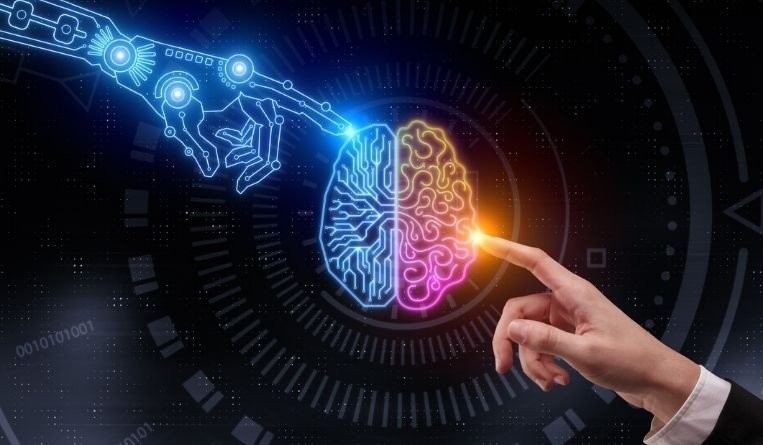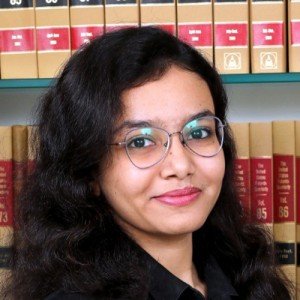AI intersects India’s patent regime
30 November 2020

Artificial intelligence continues to advance and become more intelligent, but the potential of AI not only lies in the adoption of AI, but also in how it is created and protected. India’s patent laws must keep up, argue Gopi Trivedi and Shiva Mehta.
Machines at the time of Industrial Revolution were developed by humans to ease their work. Gradually, these traditional machines and industrial practices gained momentum, reducing considerable human labour. In the current scenario of Industry 4.0, the automation of traditional machines and industrial practices using smart technologies has paved the way. Machine-to-machine learning (M2M), internet of things (IoT) and artificial intelligence (AI) are integrated for automation. AI adoption is growing faster than many had predicted. AI itself is described as the fourth industrial revolution, transforming all our jobs and lives in the coming decade. Such advancement in technology was merely a fantasy – or we may call it a thoughtful representation of fiction – until few years ago. But now, the concept of AI is no longer completely foreign to the general public and is right out there in the public domain.
What is artificial intelligence?
From Amazon and Facebook to Google and Microsoft, leaders of the world’s most influential technology giants are highlighting their enthusiasm for AI. But what is AI? Machines have been in use since long ago, but what’s different today, and is enabling this revolution, is the evolution of machine learning systems. No longer are machines just capturing explicit knowledge, where a human can explain a series of fairly logical steps. Machine learning is already all around us, unlocking our phones with a glance or a touch, suggesting music we might like to listen to and teaching cars to drive themselves. Fuelling this machine learning with data is what AI is all about. Global research and advisory firm Gartner perhaps put it best: “Artificial intelligence is technology that appears to emulate human performance typically by learning, coming to its own conclusions, appearing to understand complex content, engaging in natural dialogues with people, enhancing human cognitive performance or replacing people on execution of routine tasks.”
AI can be simplistically classified as technology that is created by a human, improved by a machine and has the power to disrupt almost all aspects of human existence. Technology so developed can behave intelligently by thinking as a human (i.e., strong AI), or even surpass humans (i.e., super intelligence). For better implementation and understanding, it is to be noted that currently we are in the weak AI phase.
Artificial intelligence in India
In 2017, India’s Ministry of Commerce and Industry set up the Task Force on AI for India’s Economic Transformation, with the mandate advising to create a framework to promote the deployment of AI, taking all social factors into account. As a further development, India’s National Strategy for Artificial Intelligence was released by the NITI Aayog in 2018, establishing AI as a ‘garage’ for emerging and developing economies under the proposed brand #AIforAll. These initiatives were to study the full potential of AI in the Indian context, marking India’s journey from AI outlier to AI adopter – and, later, to AI creator.
The potential of AI, along with promoting AI, has been largely discussed in various sectors of technological development. Despite these discussions, there has not been as much discussion on the legal implications of AI in those sectors. Each sector does embrace AI. But the potential not only lies in the adoption of AI, but also in how it is created and protected. There is this fundamental question of who owns AI which also needs more contemplation. It is therefore imperative that our laws should be more exemplified to deal with the implications of AI.
Artificial intelligence versus IP laws
When talking about implications of the law on AI, intellectual property law comes in to the picture. The foremost object of the IP laws and IP system is to encourage innovation through new technologies and creative mechanisms, which includes human creation as well as invention created and developed by AI. However, there arises a doubt as to the ownership of creations made by AI (strong AI), i.e., ownership concerning both the data as well as the technology that are the pillars to any such creation.
Creation and development of new innovation, technology is generally followed by the protection of the same through intellectual property rights, with patent law appearing to be the most effective IP protection.
There are several legal implications revolving around the patentability of AI inventions and AI-created inventions. It is imperative to understand that AI-related inventions are in context of algorithms and computer programming and that the same does qualify for patent protection in India, subject to its patentability under Section 3(k) of the Patents Act, 1970, stipulating that mathematical and business methods, computer programmes per se, arenon-patentable. In other words, for the patentability of algorithms and computer programs, the Patents Act demands the industrial applicability of the same along with novelty and non-obviousness of the invention.
Non-obviousness of the invention to the person skilled in the art, i.e. in the field of AI, is also a point of concern. Yet another concern: Per the act, patent protection is extended only to the true and first inventor, where the inventor must be natural person. The act also requires the proof of right to be filed in cases where the applicant and the inventor varies. In this case, the question arises that when AI is listed as the inventor, how such formal requirements shall be met or who shall sign the requisite forms. When we dig further into this, the issues arising are:
- Whether AI as an invention is eligible subject matter; and
- Who is the true and first inventor (i.e., inventorship).
AI inventorship in India
Looking at the Indian patent law, there is no ambiguity as to who would be counted as the inventor for AI-based inventions that involves human intervention. But, as the transition is made from weak AI to strong AI (and towards super intelligence), the question that creates dilemmas in our minds is whether AI technology can be considered as an inventor for the technology that itself further creates patentable inventions.
At present the answer is unclear. The act is silent on the inventorship of AI; however the law is always open to interpretation and debate. Section 6 of the Patents Act explicitly provides a list of what persons entitled to apply for patents, stating that an application for a patent for any invention can be made only by the true and first ‘inventor’ of the invention or his assignee. Thus, it indirectly does implies that the person is the true and first inventor.
Further a ‘patentee’, according to Section 2(1)(p), is the ‘person’ entered on the patent office register as the grantee or owner of the patent. Intuitively, this suggests that an inventor and person must mean a natural person. Now the debate arises where, Section 2(1)(s) defines ‘person’ to include the government, a non-natural entity. Moreover, ‘true and first inventor’ has an exclusionary definition in Section 2(1)(y) – excluding “either the first importer of an invention into India, or a person to whom an invention is first communicated from outside India” – and there is no mention of a natural person in there.
While these provisions do not expressly impose the requirement for an inventor to be a natural person, the predisposition appears to require human intervention for an invention to be considered patentable. The first order of business is to interpret whether an inventor must be a natural person.
Ownership
Considering AI as an inventor probably would also give rise to the liability issues. Section 48 of the Patents Act confers on the patentee “the exclusive right to prevent third parties, who do not have his consent, from the act of…” The pertinent question here is whether AI has the power to give consent. If it does, how would someone receive the requisite consent?
The same issue lies with ownership through assignment or acquisition. If ownership of the invention is transferred to a business entity that can enforce the patent, does an AI have the power to assign (i.e., give consent for change of ownership)? When it comes to courts and patent infringement; how would the courts enforce liability on an infringing AI? Does the legal responsibility arising through an AI’s illegal action lie with the AI, its owner or its user or operator? If the cause of the illegal act cannot be traced back to a specific human, who has liability? These and many similar concerns are now the subject of debates on the ambiguities of AI, not only in the IP context, but also in the context of criminal liability or civil tort liability.
Corresponding decisions in other jurisdictions
In its recent decision April 22, 2020, the United States Patent and Trademark Office (USPTO) concluded that an AI system could not be recognized as an inventor in a US patent application in which an AI machine called DABUS was designated as sole inventor. In doing so, it has ruled that only natural persons are eligible as inventors. It is interesting to note that the USPTO’s opinion relies on the “current” state of U.S. patent law, which limits inventorship to natural persons. By using this qualifier, the U.S. patent authority seems to be open to the possibility that legislation and case law may evolve over time to expand the concept of inventor ship to include AI machine as inventors.
The European Patent Office (EUIPO), in January 2020, refused two patent applications that were filed listing AI as the inventor. The EUIPO rejected the applications stating that the same “do notmeet the requirement of the European Patent Convention (EPC) that an inventor designated in the application has to be a human being, not a machine.” The EPO held that the European legal framework pursuant to the European Patent Convention makes reference only to natural persons in the context of inventorship, noting that legislators clearly intended for an inventor to be a natural person.
The UKIPO also refused to recognize AI as the inventor because the relevant sections of the UK Patents Act and case law in the United Kingdom also anticipates that an inventor be a natural person.
Conclusion
The current patent system is suited to adjudicating the patentability questions related to the existing generation of AI technology (weak AI). However, the time has come for the Indian government to begin carefully consider how computer-related inventions pertaining to the next generation of AI (i.e., strong AI and super intelligence) should be treated in the patent ecosystem. It is a known fact that the existing laws and the changes that are looked forth need to be bridged in order to give acceptance to the inventions created by AI. The existing patent law recognizes an inventor as a natural person only. At some point in the future, when AI transits from weak to strong and, finally, the super intelligent stage, inventive AI might even represent the person skilled in the art. This indeed calls for appropriate guidelines for the act that deals with AI-generated works.
AI is growing exponentially and it would not be wrong if we say AI is gradually stepping into the human shoes. Meaning thereby, inventive AI has become a significant part of research and development and is now moving a foot forward for being an inventive AI. And when it does, it will be quite challenging if we lack clear rules or guidelines on whether AI-generated inventions can be protected; who, or what, should be listed as an inventor; and who owns these inventions and related patents. It therefore appears imperative to turn our attention towards these pertinent issues arising where AI intersects IP and India’s patent regime.









